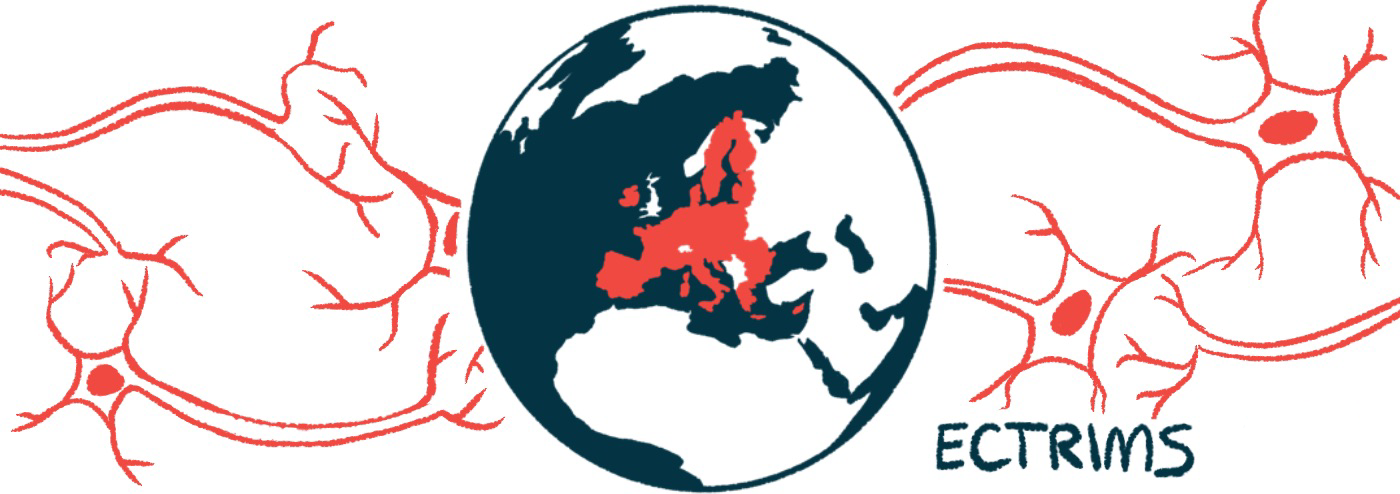ECTRIMS 2025: Eque-cel shown to ease disability in progressive MS
CAR T-cell therapy led to improvements in 5 patients in clinical trial
Written by |

Treatment with equecabtagene autoleucel, known for short as eque-cel — Iaso Biotherapeutics‘ CAR T-cell therapy candidate for people with progressive forms of multiple sclerosis (MS) — was well tolerated and led to an easing of disability for five patients taking part in a Phase 1 clinical trial.
The participants also experienced sustained improvements in walking ability and dexterity, and saw deep depletions in certain MS biomarkers.
Chuan Qin, MD, PhD, of Tongji Hospital in China, shared the findings last week at the 41st Congress of the European Committee for Treatment and Research in Multiple Sclerosis (ECTRIMS), held in Spain. Her talk was titled “Anti-BCMA CAR T cell therapy in patients with Multiple Sclerosis.”
According to Qin, the data indicate that eque-cel is “well-tolerated and highly effective in treating progressive MS,” though the scientist noted that further testing is needed due to the small number of patients in this analysis.
Although Iaso Biotherapeutics is not sponsoring this trial, it is providing the treatment, and one of the coauthors of the ECTRIMS presentation is an employee.
In the presentation abstract, the research team noted that “all patients showed [marked] functional improvement” at the study’s end compared with its start.
MS is caused by inflammation that damages healthy parts of the brain and spinal cord. While various immune cells participate in these inflammatory attacks, B-cells are believed to have a key role, with several approved MS therapies targeting this immune cell type.
Eque-cel is an autologous CAR T-cell therapy — meaning it uses a patient’s own cells — that’s designed to deplete B-cells. It is approved in China under the name Focaso as a treatment for multiple myeloma, a B-cell cancer.
The therapy involves first collecting a person’s immune T-cells, which are then engineered in a laboratory to equip them with a chimeric antigen receptor (CAR) — a man-made receptor that enables the cells to target and destroy specific cells once infused back into the body. The T-cells in eque-cel are specifically modified to carry a CAR targeting a protein called BCMA that’s found on the surface of B-cells.
Approved in China as a cancer therapy, eque-cel is now being tested for MS
Scientists at the hospital in China are sponsoring a Phase 1 study called CARTinNS (NCT04561557) to test eque-cel in MS and other disorders marked by inflammation in the nervous system.
A total of 36 patients are expected to enroll. All will receive a single infusion directly into the bloodstream (intravenously) of eque-cel at one of three doses — 0.25 million, 0.5 million, or 1 million CAR T-cells — to evaluate its safety. Prior to the infusion of eque-cel, participants will undergo a round of chemotherapy to destroy the existing immune cells and make room for the modified ones.
Qin’s talk covered data from five patients: four with secondary progressive MS and one with primary progressive MS. The participants each received 1 million CAR T-cells and were followed for an average of 5.1 months after treatment. All had stopped taking any MS treatment on the day before the chemotherapy round.
Safety results showed that four patients (80%) experienced cytokine release syndrome, an inflammatory reaction that can occur with CAR T-cell therapies. For all four, this syndrome was mild and resolved within less than two weeks.
Some CAR T-cell therapies can also cause neurological problems, but no such issues were reported in these patients. The only serious side effects reported in the study were low immune cell counts.
After treatment, patients able to walk 200 meters without aid or rest
Prior to eque-cel treatment, the patients’ average score on the Expanded Disability Status Scale (EDSS) was 6.2. That indicated that most needed an aid to walk 100 meters (about 330 feet) with or without stopping to rest. As of the latest follow-up, however, the average EDSS score had decreased to 5, indicating that most could walk 200 meters (about a 10th of a mile) without aid or rest.
Consistent with the decrease in EDSS, the average time it took these individuals to walk 25 feet decreased from 27.3 seconds before treatment to 15.7 seconds at the latest follow-up. Average scores on the 9-Hole Peg Test, a measure of upper limb dexterity, also improved for both hands following eque-cel treatment.
[Eque-cel] demonstrates favorable safety and efficacy in progressive MS, with significant functional improvements [seen in patients].
MS is often marked by the presence of proteins called oligoclonal bands in the fluid around the brain and spinal cord, as well as kappa free light chains in the blood. All patients had oligoclonal bands and kappa free light chains prior to eque-cel, but these proteins were no longer detectable within a month of the cell therapy. MRI scans also revealed no new signs of MS-related damage in any of the patients.
Overall, the researchers concluded that eque-cel “demonstrates favorable safety and efficacy in progressive MS, with significant functional improvements and resolution of OCBs [oligoclonal bands].”
Note: The Multiple Sclerosis News Today team is providing live coverage of the 41st Congress of the European Committee for Treatment and Research in Multiple Sclerosis (ECTRIMS) Sept. 24-26. Go here to see the latest stories from the conference.


